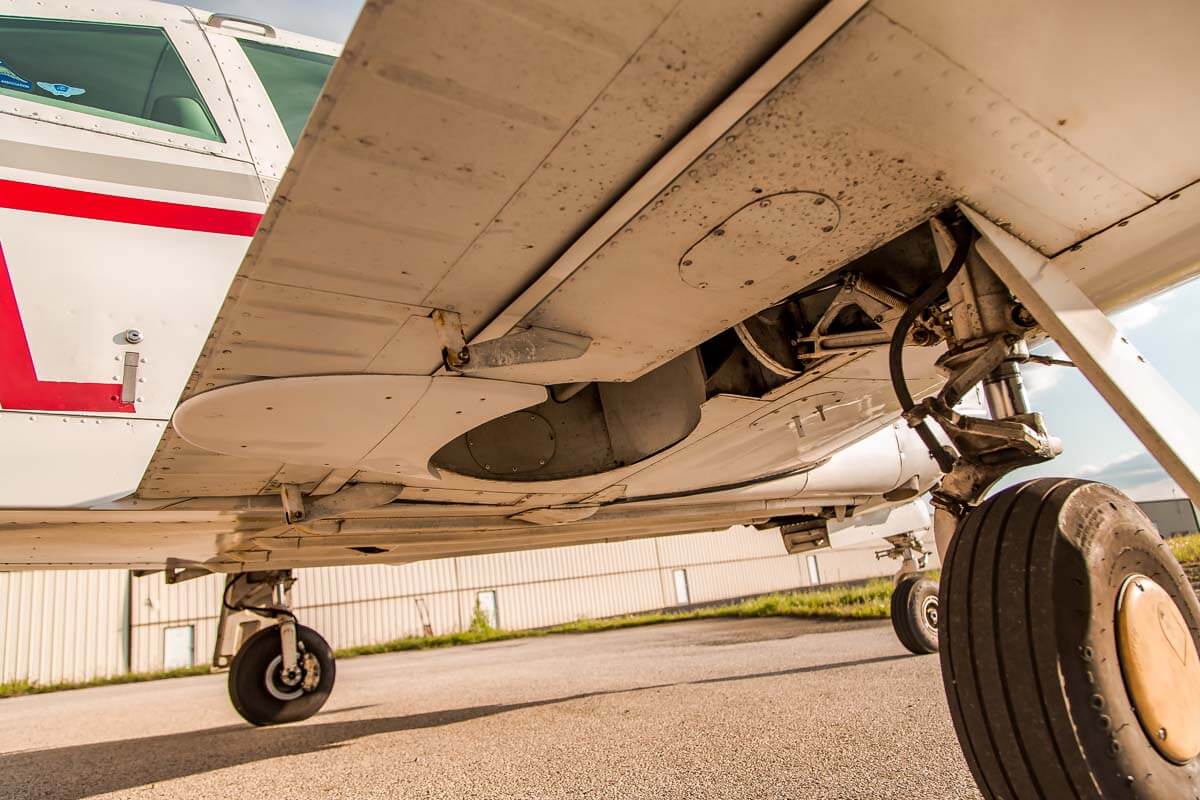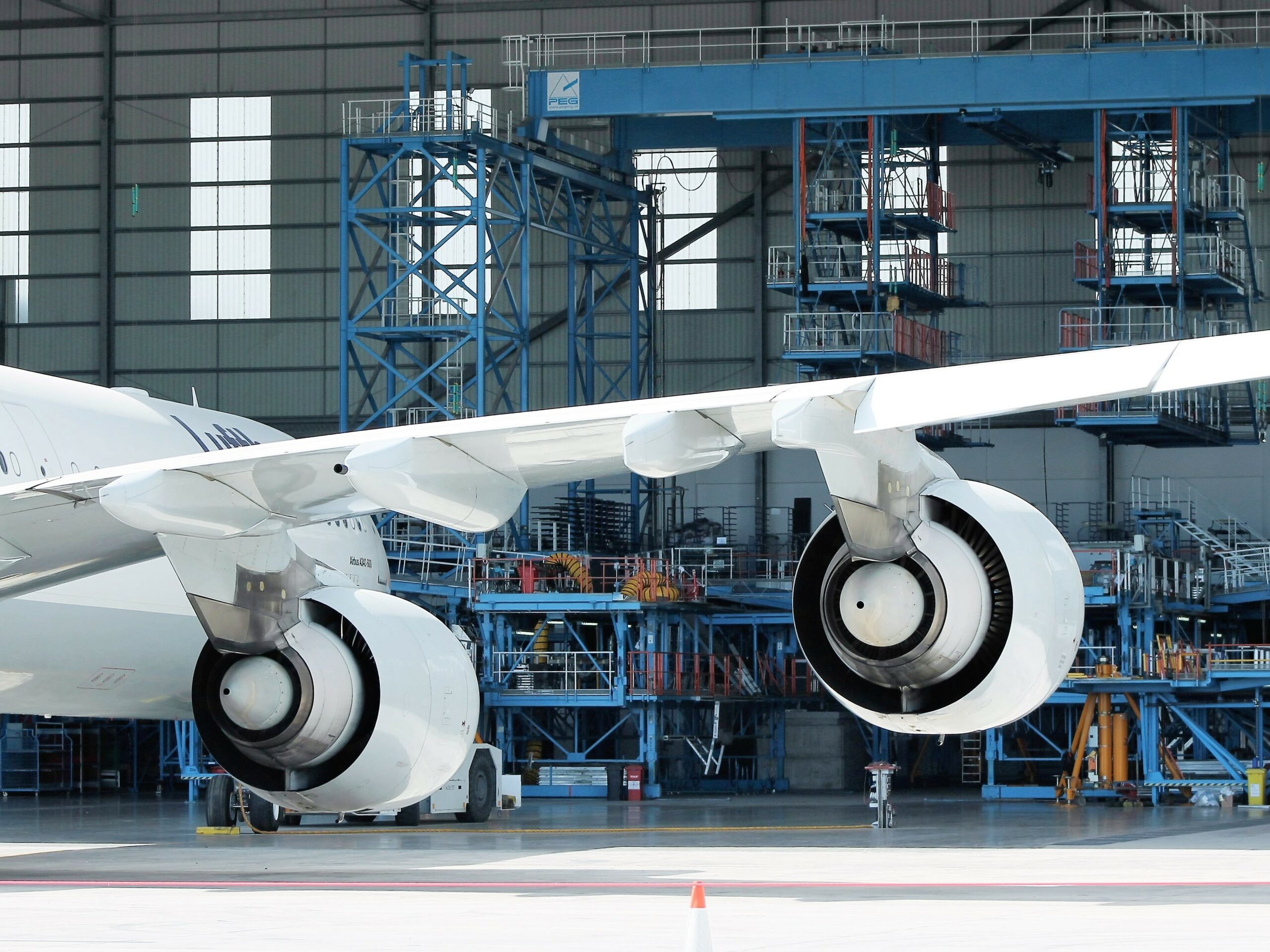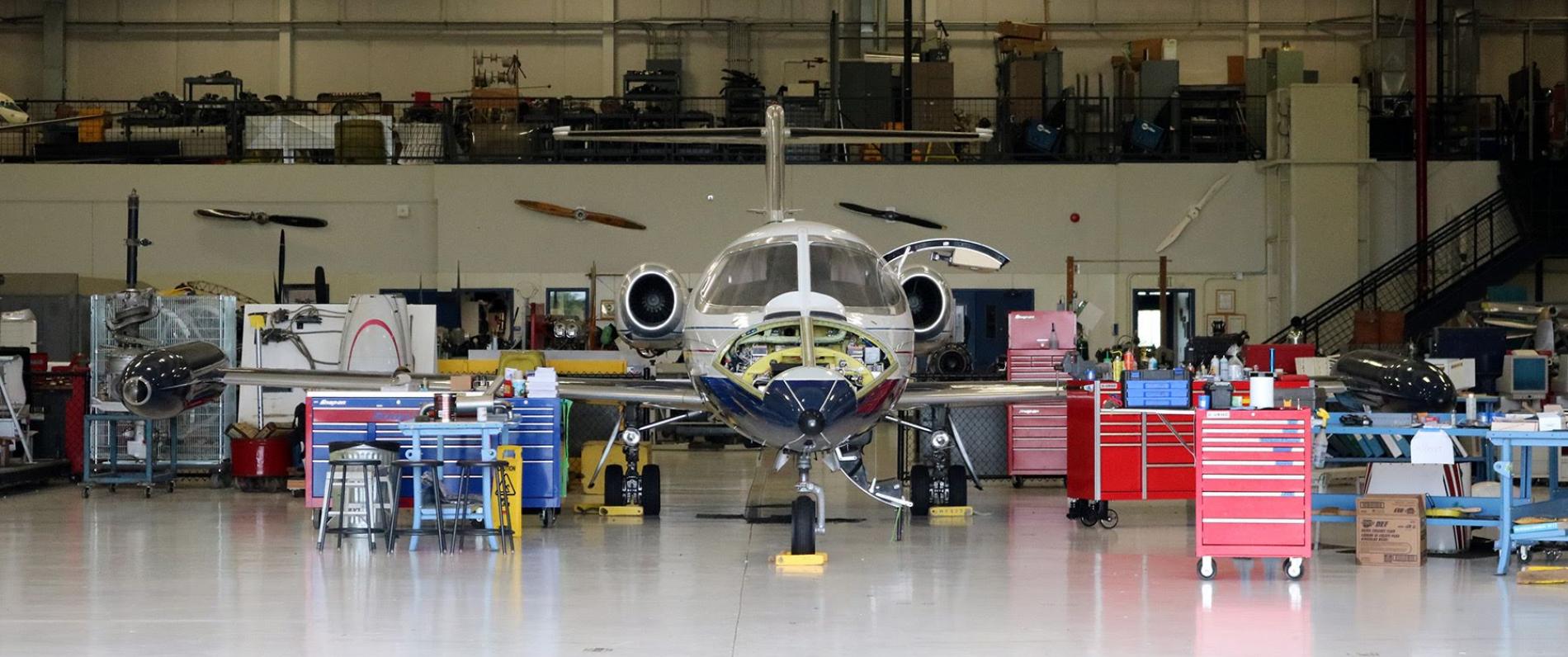Aircraft Maintenance Insurance - For cash-conscious pilots and students especially, renting aircraft can be an affordable way to get to the skies. Non-owned aircraft insurance is affordable and protects your financial stability if you experience a nasty crosswind-landing-gone-wrong, a hard landing, a ground-loop or even a minor taxi collision.
To get the most aircraft damage protection, it's wise to opt for the ground and flight coverage when buying your non-owner policy. Buy enough aircraft damage liability to pay to replace the most expensive plane that you rent or borrow.
Aircraft Maintenance Insurance

Many flight schools require a minimum of $30,000 in aircraft damage liability to rent a standard training airplane, but some mandate much higher amounts of coverage. I hope that all this information helped you become well-equipped with aviation insurance, its difference between marine insurance, the aviation insurance requirements, and what to expect when availing it as you enter the aviation industry.
Bottom Line Aircraft Renters Insurance Is A Must-Have
Begin your search for reputable aviation insurance companies and insurance carriers now and request for quotations. Stay safe flying after working with an excellent aviation insurer! A client has a new engine installed and expects all to be in working order when departing with their newly upgraded aircraft.
What happens if something were to go wrong? Completed Operations/Product liability provides protection for losses or injuries arising out of a service you provided or product you have sold. Chauncey grew up on a farm in rural northern California.
At 18 her ran away and saw the world with a backpack and a credit card, discovering that the true value of any point or mile is the experience it facilitates. He remains most at home on a tractor, but he has learned that opportunity is where he finds it and discomfort is more interesting than complacency.
Even if you are a part-owner, you will need to have similar aviation insurance as full owners. What makes it different is the insurance rates, which may differ for a group of aircraft owners or operators compared to just one aircraft owner.
Aviation Spares All Risks Insurance
You can avail of aviation insurance from a reputable insurance company, which is to help protect not only aircraft owners and operators, but their passengers as well. It is different from marine insurance, which covers ships, terminals, cargos, among other marine services.

Furthermore, there are different types of insurances and coverages to invest in, depending on one's insurance needs. Short-term coverage periods like those offered by SkyWatch have been popular with drone and sUAS remote operators, but the company also provides insurance to light aircraft renters and owners on a daily or weekly basis.
SkyWatch doesn't have the history Avemco or the AOPA have, but its coverage partner Global Aerospace Inc. has been around since 1924. A proper safety and training plan in the workplace can reduce the chance of a preventable mishap and claim.
Discussing your plan for training with your aviation insurance specialist can help you secure the best terms for your department. This is an aviation coverage similar to Hull All Risks Insurance, though this would cover spare parts that are carried on the aircraft or stored separately to use for the insured aircraft.
Who Needs Airplane Renters Insurance?
When purchasing this insurance, the insurer will submit an inventory of spare parts before agreeing to the “Average Value at Risk”, or the pre-set value the Insurer will pay in case of losing the spare item.
Not much puts the joy and freedom of flight into a nosedive faster than the headache of aviation insurance. Finding the right insurance can be difficult and finding the wrong insurance can ground you—financially and otherwise.
Aircraft owners maintain aviation policies that cover liability, in-flight damage and damage to the plane. However, the coverage provided by owners, especially rental facilities and flight schools, generally will not cover damage caused by you as a renter pilot.
The owner's insurance company may pay the claim but then sue you to recoup the cost of damages. The policy covers the aircraft for a specifically agreed value, which is stipulated in the contract and policy.

Is Aviation Renter Insurance Required For Fbo Services?
Note that unless there is a loss adjusted as “Total Loss”, there is a self-insured deductible that applies to subsequent hull claims, subtracted from the agreed value. If the aircraft is uninsured, there is a chance the owner will be barred from using Fixed-Based Operators, as they require insurance on aircraft.
Furthermore, the aircraft will be denied any landing permits. That is why investing in the aviation industry and finding a good aviation insurance underwriter is crucial in the aviation industry. Fixed-base operators (FBOs) are companies that are given permission to conduct aeronautical services at airports and act as private jet terminals.
Typical services include flight instruction, aircraft rental, aircraft maintenance, fueling and parking. FBOs normally require planes using the facility to be insured and for renters and student pilots to carry aviation renter insurance. If an aircraft is uninsured it may be denied service by the FBO.
Likewise, if you're renting a plane and are uninsured, you likely won't be allowed to fly without an FBO or flight school instructor on board. Any business can be liable for simple bodily injuries such as a slip and fall on the sidewalk to more dramatic bodily injury and property damage.
Flying Clubs And Non-Owned Aircraft Insurance
Premises liability is first priority for aviation businesses such as aviation maintenance facilities. Premises coverage protects the company and the claimant in cases of bodily injury and property damage in and around the insured property. This entry was posted
on Sunday, October 26th, 2014 at 10:00 am and is filed under AIR-Pros News, Aircraft Maintenance Shop Insurance, Aviation Insurance. You can follow any responses to this entry through the RSS 2.0 feed. Both comments and pings are currently closed.
When flying your own plane, whether for personal or business reasons, you always have to be prepared for “just-in-case” situations. That is where aviation insurance comes along, which can help manage any aviation risk that may come as you fly.

After all, there are a few risks that can impact various factors of your aircraft, may it be the ground crew, passengers, the cars on the tarmac, among others. Aircraft owners and/or operators are also liable for any compensation rewards given to accidents of deceased passengers and/or third parties that arise from the aircraft.
Life Insurance For Pilots
The compensation amount is given by a court of law in the area where the insureds reside in. Annual premiums start at $81 with comprehensive and airplane damage liability rates starting at $175 a year. AOPA members get a 5% discount on their policy and Assured Partners also offers a 10% renewal discount each year for a claim-free flying record to reward their safe pilots.
This is also known as aircraft insurance, offering aircraft liability coverage and property insurance coverage to your aircraft. Depending on the aviation insurance policy you invest in, it will cover various losses that result from aviation risk, which includes cargo loss, bodily injury to people, or property damage.
You should buy non-owned aviation insurance to cover yourself, the aircraft you rent, your passengers and anyone or anything else you might accidentally or inadvertently hurt or damage. These policies are easy to purchase, quick to set up and relatively affordable so pilots can take off without delay.
Most life insurance providers will require you to fill out a supplemental aviation form that asks questions about your level of training, how frequently you fly, instruments you are licensed for and the types of aircraft you fly.
Aircraft Unavailability Insurance
Aircraft owners take comfort in placing their aircraft in capable hands; however, sometimes accidents do happen. Perhaps an employee moved an aircraft to fit another aircraft in the maintenance hangar and the aircraft posted some hangar rash.
Hangar Keepers liability insurance protects a maintenance shop from liability when a non-owned aircraft is damaged while in your care, custody or control whether for storage and repair. Aviation Insurance Resources (AIR) has been assisting aviation maintenance centers in protecting their businesses for over 15 years and our agents average more than 30 years experience in the aviation industry.

Cessna Pilot Centers, Cirrus Service Centers, Bombardier Service Centers and McCaully Prop Shops can depend on service with integrity and the broadest policy coverage. If your business focus is a small aircraft repair shop to a large jet center MRO or an avionics service center, AIR will match the best policy for you and the best available rates.
While aircraft owners need extensive coverage for their planes, non-owned aircraft insurance is fairly straightforward and relatively inexpensive for pilots renting aircraft from clubs, flight schools and other rental outfits. Learning when and what type of insurance is required will help you find the exact policy that meets your needs and keep you flying.
How Much Non-Owned Aircraft Insurance Do I Need?
As for pilots, you don't need to invest in insurance for the airplane, but they need to carry their own aircraft insurance, as aviation insurance does not cover the pilot. Pilots need to have coverage for medical payments and aircraft physical damage coverage, as well as aircraft liability coverage.
A flying club is a member-run organization that splits the high cost of aircraft ownership by giving a group of pilots affordable access to the skies. Many insurers provide custom aviation insurance designed for the club's needs.
If you're joining a flying club, be sure to ask what types of insurance coverage the club already has and whether it's recommended or required that you purchase any additional coverage. Many clubs require each individual member to have insurance, but some charge an insurance fee or wrap the cost of the club's group insurance into the membership fees or cost of the airplane rentals.
What you pay for life insurance depends on the company's underwriting process, your health, age, amount of flight experience and other factors. Pilots who don't earn a living by flying are typically charged more for life insurance than commercial pilots, and inexperienced pilots generally pay the most.
Do You Have To Have Insurance On A Plane?
In general, recreational pilots with less than 300 total hours of experience and no instrument rating will likely have to pay an extra fee in addition to their premium. There are a number of scientific principles that go into an aircraft to keep it in the air.

Aside from aerodynamics and the physics of flight, there are actually people and companies dedicating their careers to keeping your aircraft flying. Those are the people at your local aviation maintenance center. And just like properly insuring an aircraft to protect your investment and liability exposures, aircraft maintenance facilities need the appropriate coverage to protect them from potential claims and financial hardship.
Also known as third-party liability, this type of insurance doesn't provide coverage for the insured aircraft and its passengers traveling in it. In most countries, this is mandatory aviation insurance the aviation insurance market provides, as this also offers airport liability for corporate aircraft and the like.
This aviation insurance covers the lease cost of replacement aircraft in case the insured aircraft suffers from damage or cannot fly due to technical reasons. The aviation insurance policy usually has a waiting period of seven days before the daily protection is applied to the insurance claim.
Tips For Buying Non-Owner Aviation Insurance
Every maintenance shop needs a home base and a location to store valuable tools and equipment. Building and Contents insurance is exactly what it sounds like; it covers your structure and tools in the event of a loss.
Aircraft damage liability has a deductible that is a percentage of the value of the policy. Most aircraft hull policies are “agreed value” policies. That means if the plane is totaled, the company will pay you the value stated in the policy that you and the insurer agreed upon, regardless of the aircraft's market value.
aircraft mechanic insurance, aircraft detailing insurance, aircraft maintenance liability insurance, bwi insurance for aircraft, aircraft mechanic liability insurance, aircraft cleaning insurance, a&p mechanic liability insurance, aircraft insurance broker